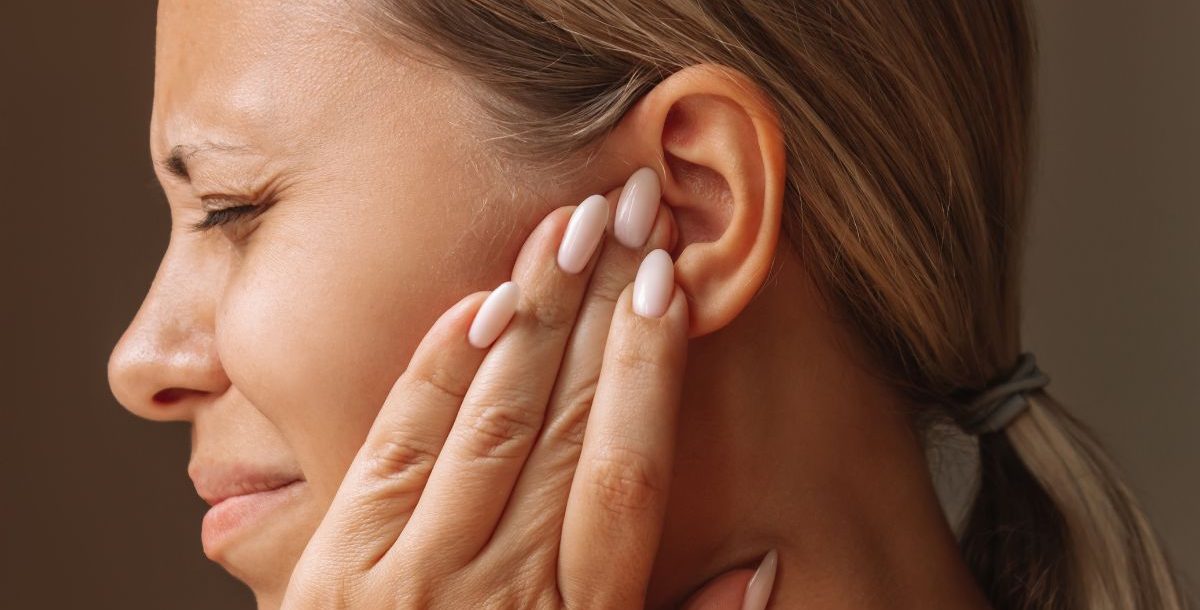Many people experience ringing in their ears, a condition known as tinnitus. But why do your ears ring, and what can you do about it?
What is tinnitus?
Tinnitus is the medical term for that high-pitched ringing, buzzing or hissing sound you hear in your ears when there’s no external noise. It can be temporary or chronic and range from mildly annoying to distressing.
If your ears ring often or nonstop, an ear, nose and throat (ENT) provider can help. Whether the cause is straightforward or more complex, your doctor can work with you to find the right treatment.
However, if your ears started ringing suddenly, the cause could be temporary like an ear infection. You can visit your local urgent care center to get your ears checked and get a prescription if necessary.
Why do your ears ring?
Tinnitus isn’t a condition on its own – it’s usually a side effect of something else happening in the body. Certain health conditions or lifestyle choices can cause tinnitus. Here are some common causes:
- Exposure to loud noise: If you’ve ever walked out of a concert or finished using power tools and noticed your ears ringing, that’s temporary tinnitus. However, being exposed to loud noises repeatedly can cause permanent damage to the nerves in the ears as well as chronic tinnitus.
- Age-related hearing loss: As we get older, the tiny hair cells in the inner ear naturally deteriorate. This can cause both hearing loss and tinnitus.
- Earwax buildup: Sometimes, earwax can clog the ear canal, creating a ringing sound in your ear.
- Middle ear infections: Infections can cause inflammation in the middle ear, leading to temporary tinnitus.
- Blood flow issues: High blood pressure, narrowed blood vessels or turbulent blood flow near the ear can create a pulsing form of tinnitus, called pulsatile tinnitus.
- Meniere’s disease: This inner ear disorder, which also causes dizziness and hearing loss, can trigger tinnitus.
- Acoustic neuroma: This rare, noncancerous tumor grows on the nerve that connects your ear to your brain and can lead to tinnitus.
Can tinnitus get worse?
Unfortunately, tinnitus can worsen over time for some people. Factors that may make it more intense include:
- Continued exposure to loud noise: Without proper ear protection, loud sounds can further damage your ears.
- Stress and anxiety: Stress can heighten your awareness of tinnitus, making it seem louder than it actually is.
- Certain medications: Some medications, including high doses of anti-inflammatory drugs like aspirin or certain antibiotics, can worsen tinnitus.
- Hearing loss: When hearing diminishes, the brain may “fill in the gaps” with ringing or buzzing sounds.
How to reduce the impact of tinnitus
While there’s no universal cure for tinnitus, there are ways to manage it and reduce its impact and improve your quality of life.
Get a hearing test
If you have tinnitus, start by getting a professional hearing test. Sudden hearing loss, often sensorineural hearing loss specifically, and tinnitus commonly go hand in hand. A hearing specialist, such as an ENT doctor or audiologist, can assess your overall ear health.
Consider a hearing aid
If your tinnitus is linked to hearing loss, a hearing aid can help amplify external sounds, making the ringing less noticeable. Some hearing aids even come with built-in tinnitus-masking features.
Try cognitive behavioral therapy
Tinnitus can be frustrating, but cognitive behavioral therapy (CBT) can help retrain your brain to focus less on the ringing. CBT particularly helps people whose tinnitus worsens from stress and anxiety.
Protect your ears
Prevent further damage by wearing ear protection in loud environments. Whether you’re at a concert or using power tools, earplugs or noise-canceling headphones can make a huge difference.
Manage blood pressure and blood flow
Since blood flow problems can contribute to tinnitus, keeping your blood pressure in check through a healthy diet, exercise and medication (if prescribed) can help reduce symptoms.
Treat underlying conditions
If your tinnitus is caused by an ear infection, removing the infection will likely help. If it’s earwax buildup, professional ear cleaning can provide relief.
Reduce stress
Stress can worsen tinnitus. Relaxation techniques like deep breathing, meditation or even yoga can help lessen the impact of ringing in your ears.
How we can help
Why do your ears ring? The answer is sometimes complex, so it’s best to make an appointment with an ear, nose and throat (ENT) specialist. Getting an evaluation that includes a hearing test can rule out potential causes. They can then make treatment recommendations.
If you need treatment after office hours, visit a nearby urgent care. There’s no cure for tinnitus, but the right treatment plan can improve your quality of life.
Learn about the ear, nose and throat services we offer at Bon Secours.





